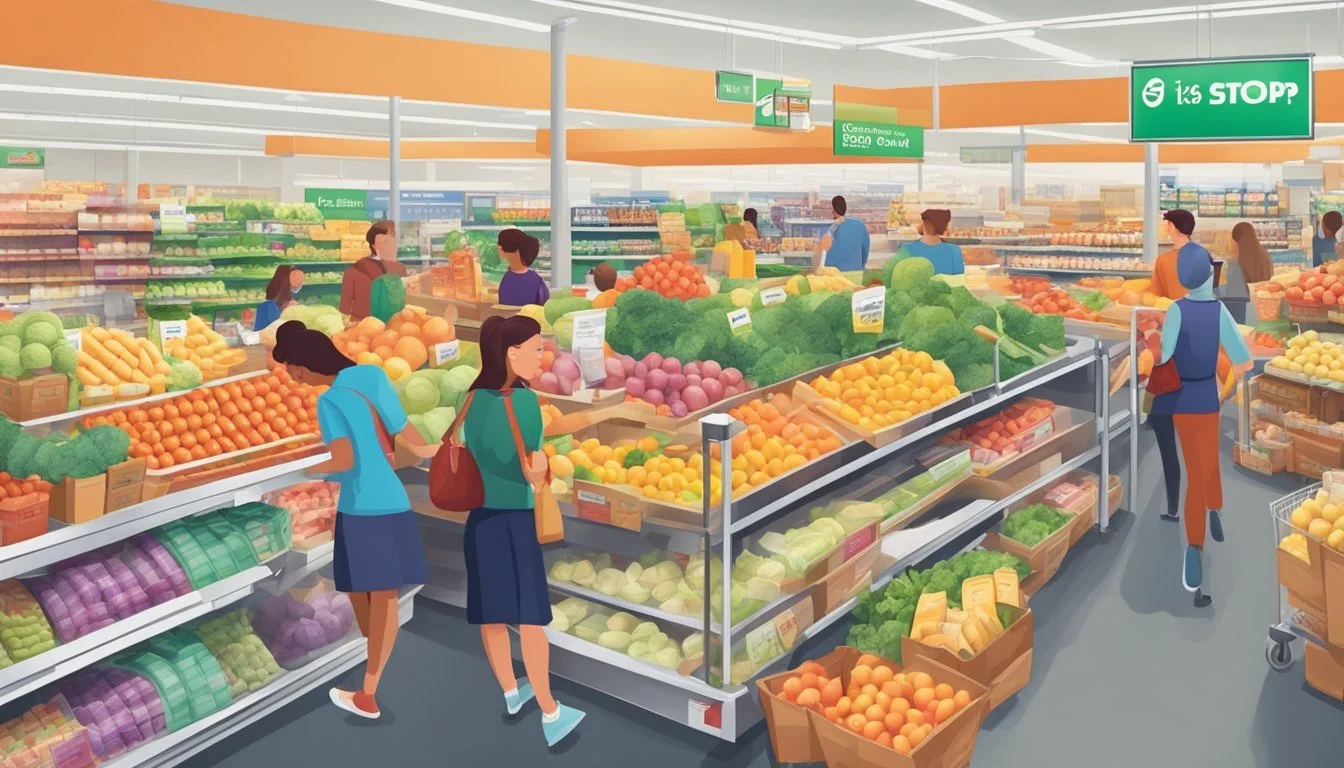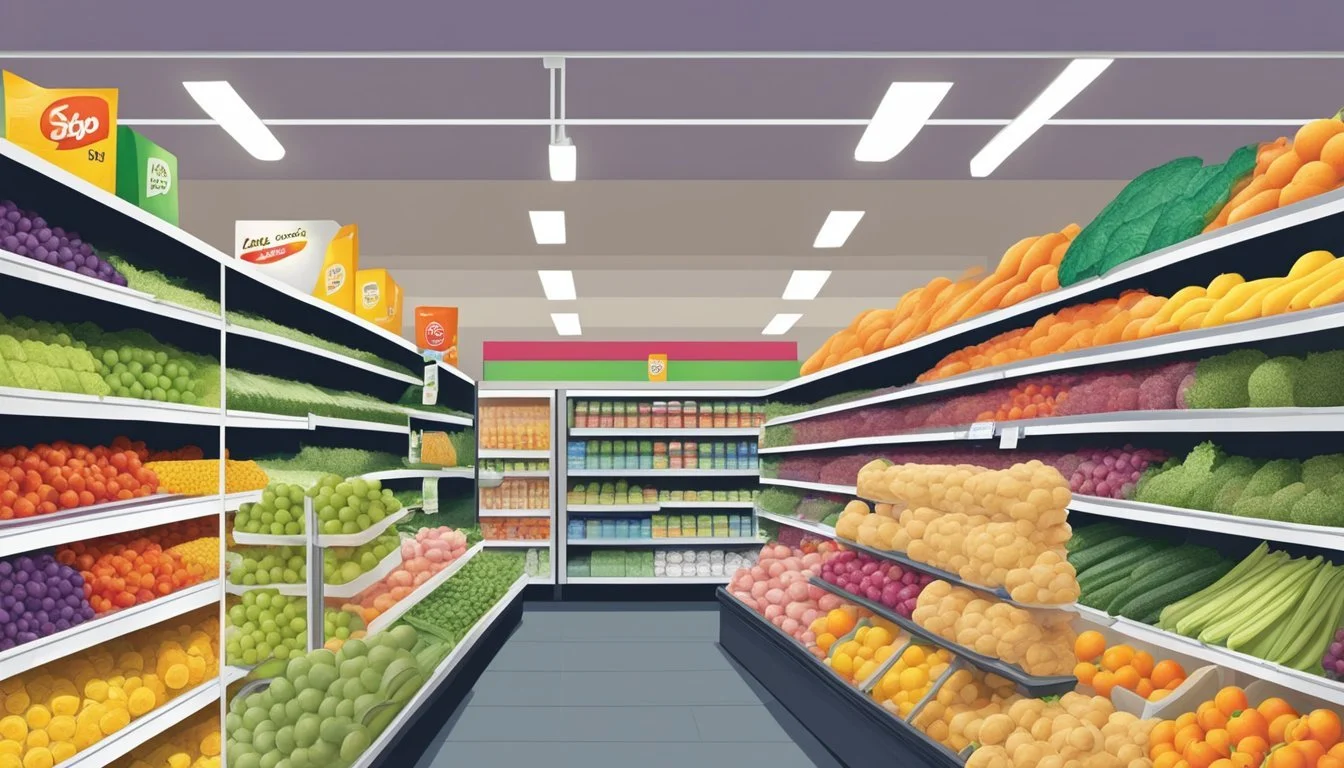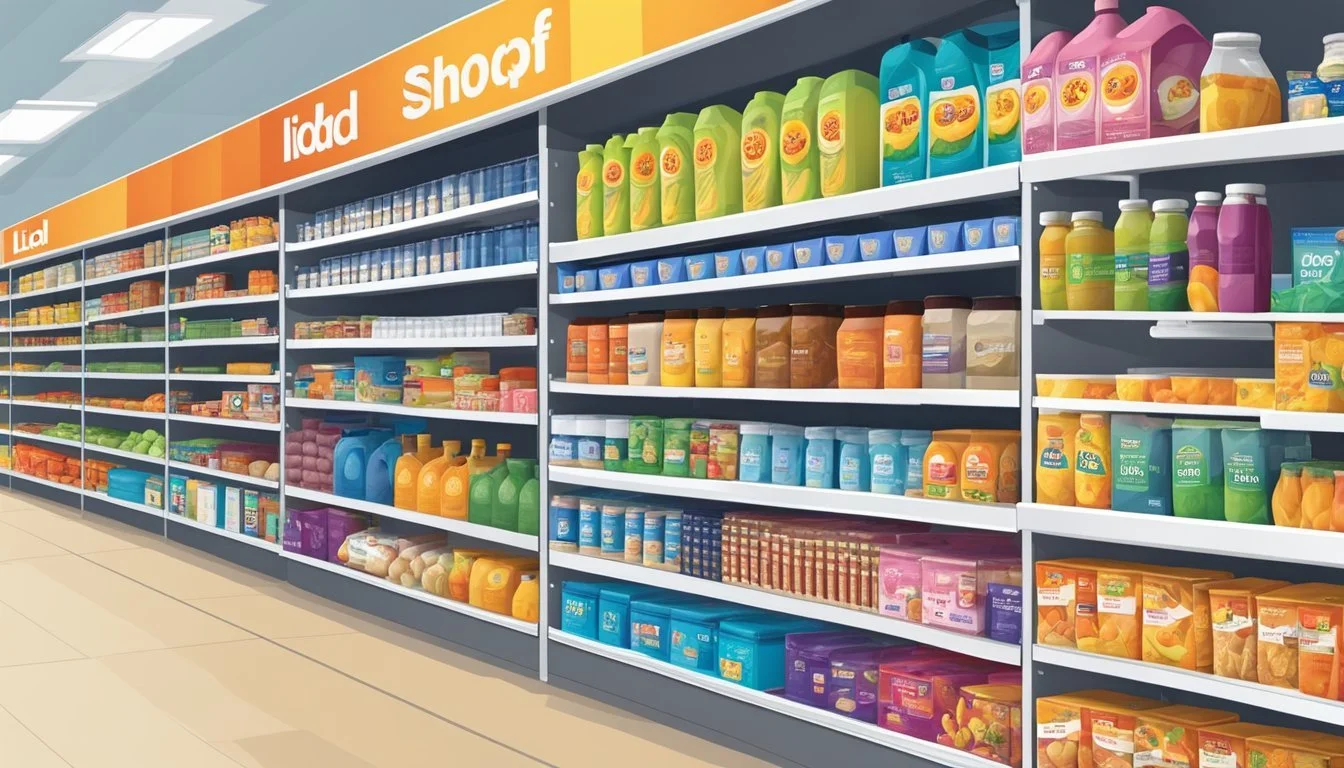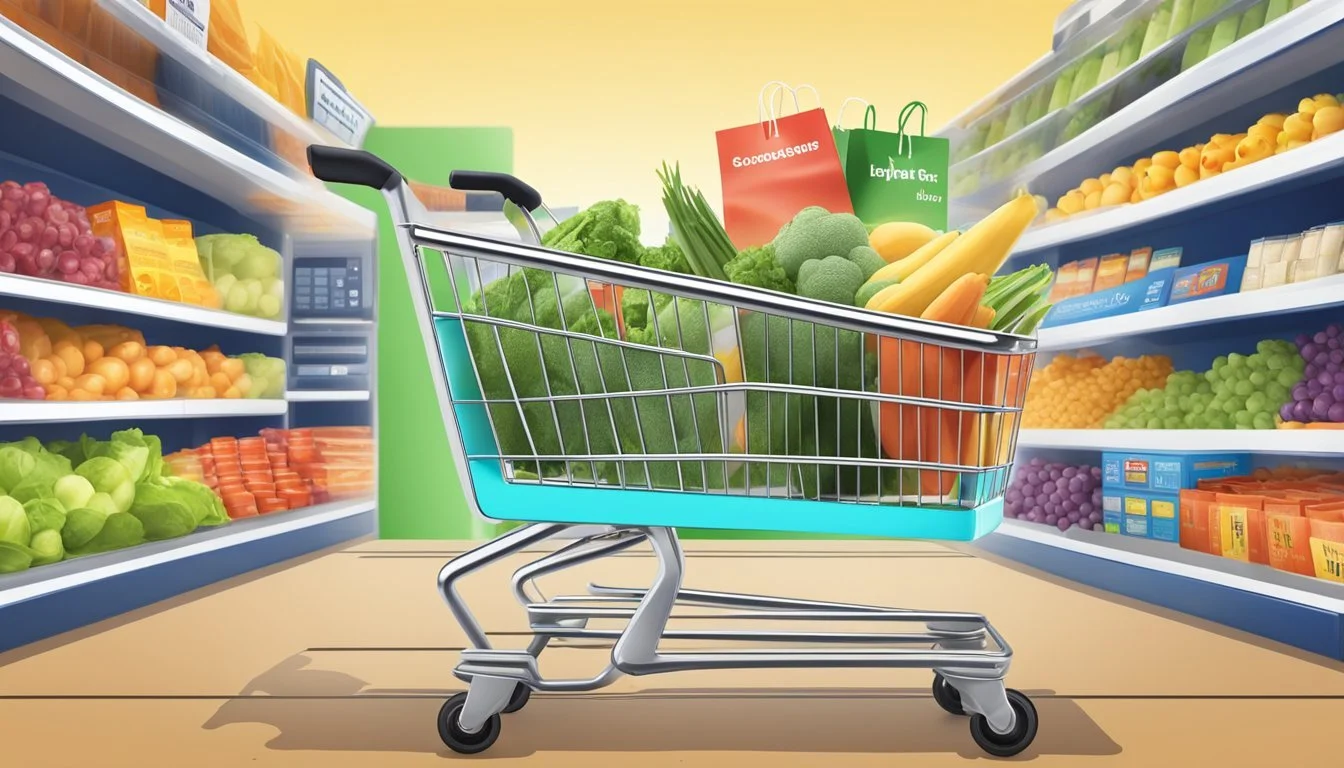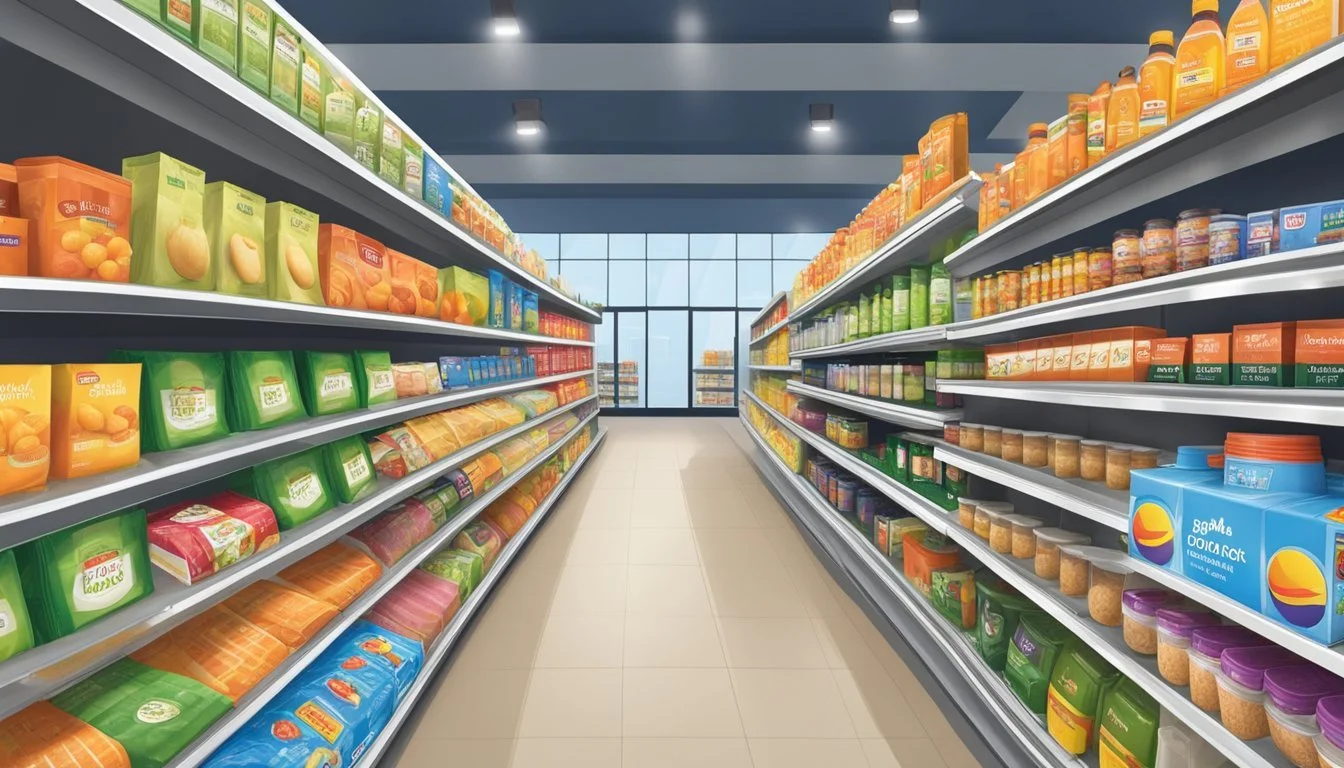Is Lidl Cheaper Than Stop & Shop?
Comparing Grocery Store Prices
Part of Our Grocery Store Guide with Details on Lidl Prices and Stop & Shop Prices
In the landscape of supermarkets, price is often a determining factor for customers deciding where to shop. Lidl, known for its European roots, has made a name for itself by offering an assortment of both European and domestic products at value prices. This competitive pricing is central to Lidl's appeal, especially when compared to more established US supermarket chains like Stop & Shop, which offers a broader range of national brands as well as more specialty items. The question of whether Lidl is cheaper than Stop & Shop is one that budget-conscious shoppers commonly ask.
When analyzing price differences between the two supermarkets, one must consider the types of products they carry. Lidl operates with a leaner store layout, geared towards efficiency and cost-saving, which could contribute to lower prices. It is reported that Lidl's pricing can be substantially lower in comparison to Stop & Shop, with some reports suggesting considerable percentage differences on a range of products.
Price, while a significant factor, is not the only consideration. Shoppers also weigh the shopping experience, which encompasses store layout, product variety, and overall convenience. Stop & Shop's larger stores with traditional layouts may appeal to those seeking a more familiar shopping experience. Lidl's smaller footprint stores, on the other hand, appeal to those who favor a more streamlined shopping trip. These factors, combined with pricing strategies, play a crucial role in where consumers choose to spend their grocery dollars.
Overview of Lidl and Stop & Shop
Lidl and Stop & Shop are two prominent supermarket chains, with distinct histories and expansions, brand presence, and store layouts, which shape their shopping experiences. This section delivers an insight into their backgrounds, market strength, and consumer interactions within their establishments.
History and Expansion
Lidl originated in Germany in the 1930s and has since expanded significantly, with over 11,000 stores globally. It made its entry into the East Coast of the United States around 2017, and has been pursuing aggressive growth strategies ever since. Stop & Shop, with a history dating back to 1914 in Massachusetts, has become a staple on the East Coast with over 400 stores, continuing to serve a broad consumer base.
Brand and Market Presence
Lidl is known for its cost-effective approach, focusing primarily on store brands, like Simply Nature, and maintaining a robust selection. It frequently offers deals making it appealing for budget-conscious consumers. On the other hand, Stop & Shop caters to a variety of customer needs with both name-brand and private label products, solidifying its status as a traditional, full-service supermarket.
Store Layout and Shopping Experience
The layout of a Lidl store emphasizes simplicity and efficiency, often displaying products in their original cardboard shipping boxes to save on shelving costs. Stop & Shop offers a more conventional shopping experience, with a layout that includes extensive signage and organized shelves. Both stores aim to create a shopping environment that aligns with their brand image and consumer expectations. Lidl's layout strategy may lead to lower overhead costs, thereby potentially allowing for lower pricing on products compared to the traditional layouts seen in stores like Stop & Shop.
Price Comparison Framework
This section outlines the systematic approach to comparing the prices between Lidl and Stop & Shop, considering various factors that influence pricing.
Comparison Methodology
The methodology for price comparison between Lidl and Stop & Shop involves conducting periodic surveys of prices across a predefined basket of goods. The basket typically includes a diverse range of items to accurately represent the consumer's shopping experience. Prices are recorded for identical or similar items where brand substitutions are necessary. To ensure relevancy, the comparisons are conducted on days where no specific sales influence regular prices, negating temporal discount effects.
Survey: Regularly scheduled surveys of both stores' prices.
Basket of Goods: A standardized list that includes a range of products.
Brand Substitutions: Comparable alternatives in the absence of identical items.
Non-Sale Prices: Comparison done on non-sale prices to maintain consistency.
Factors Affecting Prices
Several factors can influence retail prices in supermarkets like Lidl and Stop & Shop. These include labor costs, supply chain efficiency, sales frequency, and in-store discounts. Lidl generally operates with a low-cost structure due to limited assortment and high turnover of inventory which can lead to reduced labor costs. Stop & Shop might offer a wider range of products and brands, possibly influencing higher supply chain costs. Additionally, special sales and discounts can temporarily alter prices, and such fluctuations are taken into account during price comparison.
Labor Costs: Impact of staffing and operations on pricing.
Supply Chain: Efficiency and costs associated with product sourcing.
Sales Frequency: The regularity and impact of sales on regular prices.
Discounts: In-store promotions affecting the final purchase price.
Cost of Groceries at Lidl vs Stop & Shop
Grocery prices and saving opportunities at Lidl and Stop & Shop are key considerations for consumers evaluating their shopping choices. These aspects directly impact the budget of shoppers seeking value without compromising on quality.
Average Basket Cost
The average cost of a basket of groceries can vary significantly when comparing Lidl with Stop & Shop. Lidl's aggressive pricing strategy means that, on average, customers may find lower price tags for similar products. Lidl emphasizes their selection of store brands, which typically allows for lower prices as compared to national brands. In contrast, Stop & Shop offers a mix of its own store brands alongside national brands, potentially influencing the total cost at checkout to be higher, depending on the items chosen.
Lidl: Lower average basket cost due to store brands and pricing strategy.
Stop & Shop: Higher average basket cost with a mix of store and national brands.
Savings and Discounts
Both stores offer various savings and discounts, but their approaches differ. Lidl often presents discounts through their in-house brands and weekly deals, allowing savers to take advantage of lower prices on a range of products. Stop & Shop may offer savings via loyalty programs, frequent sales on national brands, and digital coupons that can be appealing to shoppers who seek familiar brands and enjoy curating their discounts strategically.
Lidl: Weekly specials and discounts primarily on their store brands.
Stop & Shop: Sales on national brands, loyalty programs, and digital coupons.
Shoppers find that while Lidl's low-cost strategy translates to immediate savings without the need for loyalty programs, Stop & Shop's mix of sales, coupons, and discount strategies can yield substantial savings but typically require active participation in their savings programs.
Product Assortment and Brand Offerings
When comparing Lidl and Stop & Shop, one notices distinct variations in product assortment and brand offerings. Each store approaches the balance between private labels and name-brand products differently, with a diverse array of fresh produce and perishables that cater to different consumer preferences.
Private Label vs Name-Brand
Lidl prioritizes its private label products, which emulate popular name-brand items, often positioned side by side on the shelves. This allows for direct price comparison, typically showing Lidl's offerings as more cost-effective. In contrast, Stop & Shop features a more extensive range of name-brand products, meeting the demand of customers who seek brands that they know and trust.
Lidl:
Strong focus on European and private label brands.
Comparable quality to name brands at lower prices.
Stop & Shop:
Greater emphasis on national name-brand products.
Wide selection of specialty items not usually found in discount stores.
Selection of Fresh Produce and Perishables
The fresh produce and perishables section is a battleground for customer loyalty. Lidl offers a compact but carefully curated selection, with a strong emphasis on fresh produce, meat, and bread at competitive prices. Their produce section, though not as expansive as some competitors, provides essential items and seasonal specialties.
Lidl:
High turnover of produce ensures freshness.
Competitive pricing on essentials like fruits, vegetables, and meats.
Stop & Shop, owing to its larger store size, provides a broader selection of fresh foods, including a wider variety of fruits, vegetables, seafood, and organic options.
Stop & Shop:
Larger produce section with more diverse offerings.
Organic and high-end options, including a variety of seafood and meats.
Both retailers have structured their offerings to cater to their target demographics’ needs for quality and pricing, striking a balance that defines their individual market space.
Additional Amenities and Services
Lidl and Stop & Shop offer a variety of amenities and services designed to enhance the shopping experience. These include in-store bakeries and specialty sections as well as online shopping and delivery options, addressing the needs of diverse customers.
In-Store Bakery and Specialty Sections
Lidl takes pride in its freshly baked goods, offering shoppers a wide variety of bread, pastries, and desserts made in-store. The bakery section is a central feature that differentiates Lidl from many competitors, enticing customers with the aroma of fresh bakery items. Additionally, Lidl provides specialty sections such as a carefully curated wine section, bringing a touch of gourmet to their offerings.
On the other hand, Stop & Shop is recognized for their expansive grocery selection, including a bakery with an assortment of baked goods. They also cater to various needs through their seafood section, where customers can find fresh options in addition to the typical grocery store offerings.
Online Shopping and Delivery Options
Both Lidl and Stop & Shop have embraced the digital age with online shopping solutions. Stop & Shop offers an online shopping service complemented by delivery through Peapod, which allows customers to shop virtually and schedule home delivery. This service is an efficient way for customers to manage their time while still accessing the groceries they need.
Lidl, while newer to the online shopping and delivery game, has partnered with Shipt to provide shoppers with a convenient delivery option. Customers can shop for groceries via the Shipt app from Lidl's varied selection and have them delivered to their doorstep, showcasing their commitment to customer convenience and flexibility.
Customer Experience and Satisfaction
When comparing Lidl and Stop & Shop, customer experience, and satisfaction hinge significantly on store policies, shopping experience, and engagement efforts that affect how shoppers interact with the brands.
Store Policies and Guarantees
Lidl takes pride in its "Love It Guarantee" where customers dissatisfied with a product can receive both a refund and a replacement, although exclusions like alcohol and national branded items apply. Stop & Shop doesn't have an identical policy, but they maintain a return policy that aims to ensure customer satisfaction, albeit typically offering a refund or an exchange rather than both.
Refund Guarantee:
Lidl: Refund + Replacement on Lidl-branded items
Stop & Shop: Refund or Exchange, as per standard
Loyalty Programs and Customer Engagement
Loyalty programs are pivotal in enhancing the customer experience. While Lidl doesn't have a traditional loyalty program, it entices customers with "Lidl Surprises"—special finds in the middle of the store, reminding one of Aldi Finds which offers weekly deals on unique and seasonal items.
Stop & Shop provides a more structured loyalty program that allows customers to accumulate points that can be converted into discounts on future purchases or gas prices.
Customer Engagement:
Lidl: Special limited-time offers in-store
Stop & Shop: Points-based loyalty program for discounts and savings
Analysis of Specific Product Categories
When comparing Lidl to Stop & Shop, the cost differences become more evident when broken down into specific product categories such as canned goods, fresh meats and cheeses, and snacks and confectionery.
Canned Goods and Non-Perishables
Lidl offers a range of European and domestic canned goods that are competitively priced. Customers can find a variety of pastas and beans at lower prices. For example, a can of tomatoes or beans might be priced less at Lidl compared to Stop & Shop, which is known for a broader range of national brands.
Pasta: Lidl often provides more affordable options.
Beans: Both Lidl and Stop & Shop offer a variety of beans, but Lidl's pricing is usually better for budget-conscious shoppers.
Fresh Meats and Cheeses
The meat section at Lidl frequently showcases special deals on fresh meats, including beef. In contrast, Stop & Shop features a wider selection of meats and cheeses but often at a higher price point.
Beef: Lidl's pricing on select cuts of beef is typically lower than Stop & Shop's.
Cheddar and Other Cheeses: Shoppers seeking lower price options may find Lidl's offerings on cheddar and other cheeses to be more pocket-friendly.
Snacks and Confectionery
Lidl's snack aisle includes a variety of chocolates and other confectionery items, often imported from Europe, at prices that undercut competitors. Stop & Shop offers a vast array of snacks as well, but Lidl's aggressive pricing is notably advantageous for those who want to save on such items.
Chocolate: A direct comparison often reveals Lidl's chocolate prices to be more economical.
Snacks: Consumers encounter a diverse selection at both stores, yet Lidl regularly provides more savings on snack items.
Comparative Analysis of Store Brands
In the landscape of grocery retailing, store brands often reflect the philosophy and market position of the underlying chains. Lidl and Stop & Shop present their exclusive products catering to different demographics, focusing on value and choice.
Lidl Exclusive Brands
Lidl prides itself on a variety of exclusive store brands designed to offer premium quality at lower prices. The brand Specially Selected offers customers gourmet and specialty items including cheeses, chocolates, and coffees. Meanwhile, Fit & Active is Lidl's option for health-conscious shoppers seeking low-calorie, low-fat or high-protein products. They meticulously curate their products to ensure both quality and affordability.
Private Label Examples:
Specially Selected: gourmet food options.
Fit & Active: health-oriented products.
Stop & Shop Labels and Offerings
Stop & Shop responds to the demand for diverse product ranges with its assorted store labels. Their products span from basic necessities to specialty items. The quality of their private labels is maintained to meet the standards their customers expect, providing a balance between cost and quality.
Private Label Examples:
They offer a traditional range that includes everyday grocery needs.
Specialty items are also available for those seeking unique or artisanal products.
Shopping and Budgeting Tips
When comparing the cost of groceries at Lidl and Stop & Shop, budget-conscious consumers can optimize their savings by leveraging sales, discounts, and strategic planning. The art of saving on groceries extends beyond simply choosing the store with the lowest sticker prices; it involves a mix of savvy shopping techniques and careful budgeting.
Maximizing Savings Opportunities
Shoppers can unlock significant savings by staying informed about sales and specials accessible at both Lidl and Stop & Shop. Lidl often promotes discounts in their weekly leaflets and in-store signage. Taking advantage of these offers typically involves:
Checking weekly flyers: Both digital and paper flyers contain timely deals.
Signing up for loyalty programs: Access member-only discounts and track savings.
Understanding sale cycles: Purchase items at their lowest prices during sales cycle peaks.
Likewise, Stop & Shop provides savings through its own set of initiatives which may include digital coupons and gasoline reward programs. Consumers should compare deals from both stores by:
Using apps or websites: Stop & Shop’s Go Rewards program can offer personalized deals.
Fuel rewards: Savings at the pump can be a deciding factor for those where Lidl doesn't offer similar benefits.
Creating an Effective Shopping List
An effective shopping list isn’t just a list of needed items; it's a tool for budgeting and avoiding impulse purchases. The process involves:
Inventorying: Before writing a list, they should check their current supplies to avoid duplicates.
Planning meals: This ensures that all necessary ingredients are listed, preventing extra trips.
Categorizing items: Grouping items as they are located in the store can streamline the shopping experience.
Setting a budget: By knowing their limit, shoppers are less likely to overspend.
A streamlined list for Lidl and Stop & Shop should prioritize store-brand products for additional savings, since both retailers offer a variety of private label goods that are often less expensive than national brands.
Future Trends in Grocery Retail
The grocery retail landscape is shifting significantly due to advancements in e-commerce and an increasing consumer focus on sustainability. These trends are shaping how retailers operate and engage with their customers.
Impact of E-Commerce
E-commerce has changed the way consumers shop for groceries. After a surge in online shopping during the pandemic, retailers have continued to expand their digital platforms. Traditional retailers like Stop & Shop and Lidl, as well as e-commerce giants like Amazon, are enhancing their online presence to offer consumers more convenience. They are incorporating technologies like AI to personalize the shopping experience, as suggested by industry insiders.
AI in Retail:
Co-pilot for consumers: AI can suggest products based on past purchases.
Push Notifications: Custom alerts for promotions based on consumer preferences.
Sustainable Practices and Consumer Demand
Retailers are recognizing the importance of sustainability in response to consumer demand. Practices such as sourcing local produce, minimizing food waste, and using eco-friendly packaging are becoming more common.
Sustainability Efforts:
Local sourcing: Reduces transportation emissions.
Reduced packaging: Cuts down on waste and appeals to environmentally-conscious consumers.
Grocery stores are not only incorporating these practices into their operations but are also leveraging them as part of their brand identity to attract customers who value sustainability.

